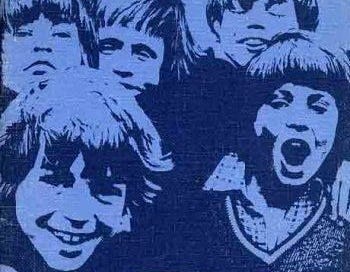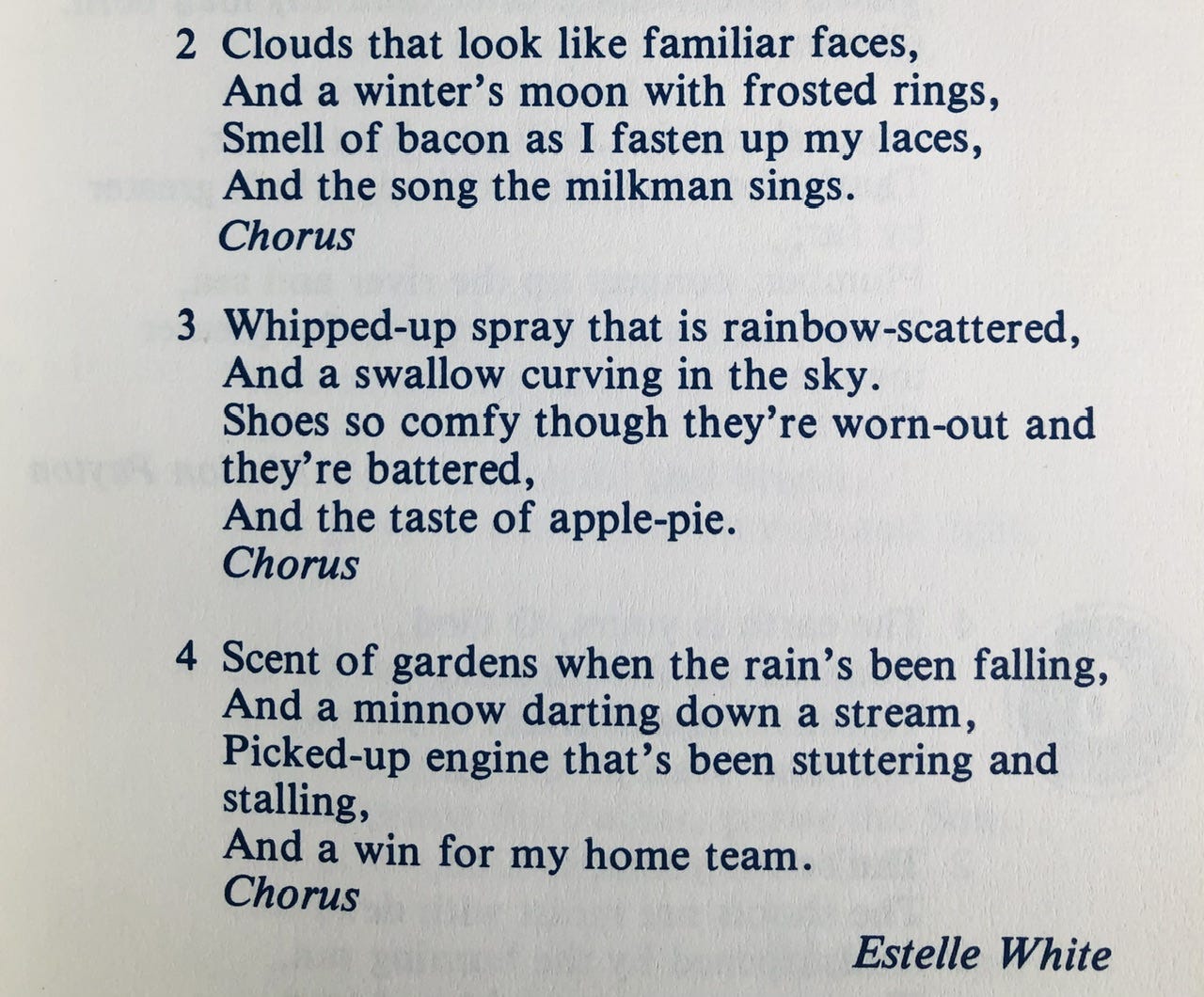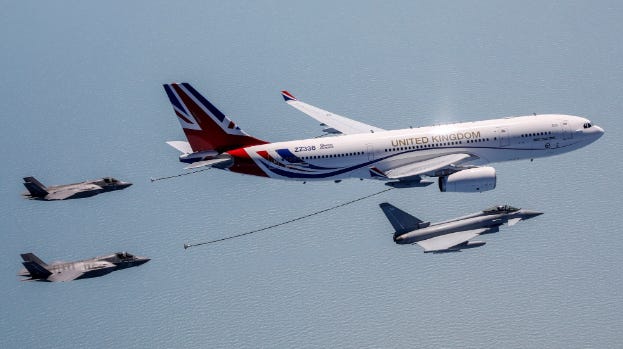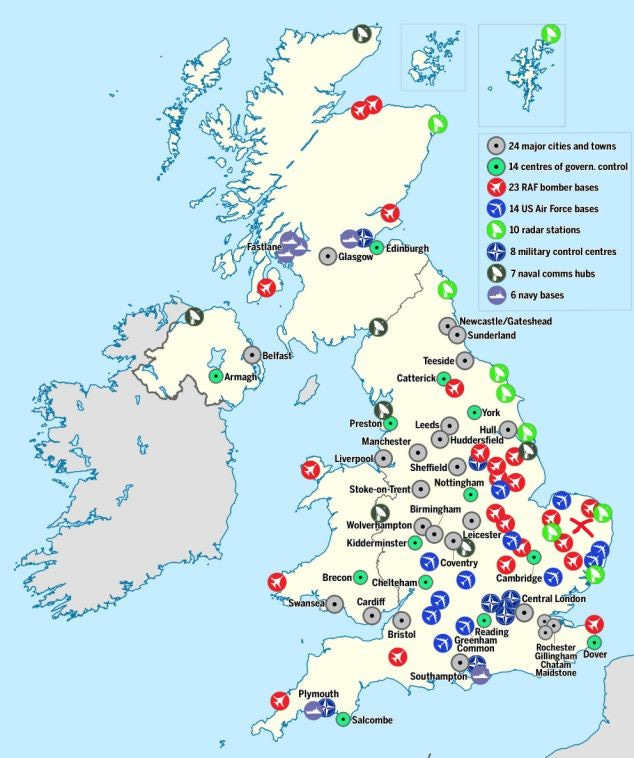Hymns are the poems of the people […] Even today, when it is assumed we’ve all given up religion […] you can still catch milkmen and bus-conductors whistling hymn-tunes.
John Betjeman, BBC radio, 1975
Around this time of year, when the morning sun begins to slant across dewy lawns, a line of song comes into my head:
Autumn days when the grass is jewelled
Many British people my age and younger will know how it goes:
And the silk inside a chestnut shell,
Jet planes meeting in the air to be refuelled,
All these things I love so well.
From the 1980s onwards, in school assemblies up and down the country, these were famous opening lines. “Autumn Days” was a modern hymn that not only came with a catchy, upbeat tune — its lyrics had a poetry that exceeded their ostensible purpose.
You found it by turning to number 4 in Come and Praise, a stapled pamphlet issued by BBC Radio for Schools. The light blue cover, featuring several kids with shaggy Seventies haircuts, was lacquered with the kind of shiny weave that expected grubby fingers. Mixing 50 new hymns with 20 traditional ones, Come and Praise was an attempt to update the available materials for compliance with the 1944 UK law requiring state schools to hold a “broadly Christian” act of “collective worship” every day. The initial print run in 1978 was almost one million, which must have sold out quickly, as it was reprinted the same year, and annually thereafter.
“Autumn Days” perfectly understood the assignment of a hymn that was not too hymn-y — possibly too perfectly. Here are the other verses, as printed in the navy-blue ink that was a nice typographic touch to Come and Praise:
This seems to me an unusually skilful poem for children, lightly framed as piety (the chorus went: “So I mustn’t forget, / No, I mustn’t forget, / To say a great big thank-you, / I mustn’t forget”). The metre is catchy and exacting in its controlled variety, and is drawn out by a melody requiring the articulation of all syllables. Lines 1 and 3 begin on the beat with a trochee (“Aut-umn”), and end with the same foot as a rhyme (“jew-elled”), while lines 2 and 4 run in with a rising anapaest (“And the silk”), and end by rhyming on the strong stress of an iamb (“-nut shell”), with the fourth line falling one iamb short for emphasis.
And then there is the spectacular ingenuity of that rhyme. Surely, in the history of modern English, no rhymer — not even Thomas Hardy — had reached for “jewelled / refuelled” before. If the pretty, Victorian opening of “Autumn Days” seemed of a piece with the lyrical hymns to nature that preceded it in Come and Praise (“Morning Has Broken”, “All Things Bright and Beautiful”), “Jet planes meeting in the air to be refuelled” blew all that out of the water. This was Cold War Britain, and we were to say thank-you for the miracles of the military-industrial complex too. In the Norfolk school where I sang it — marked with a red X on the right of the map here — we were encircled by UK and US airbases, so I think I imagined that I had seen this phenomenon at some point in my life, although now I feel fairly sure it would only have been on TV.
Coincidentally, it was also in Norfolk, in 1996, that the hymn became briefly controversial. As The Times reported it:
Keep reading with a 7-day free trial
Subscribe to Some Flowers Soon to keep reading this post and get 7 days of free access to the full post archives.







